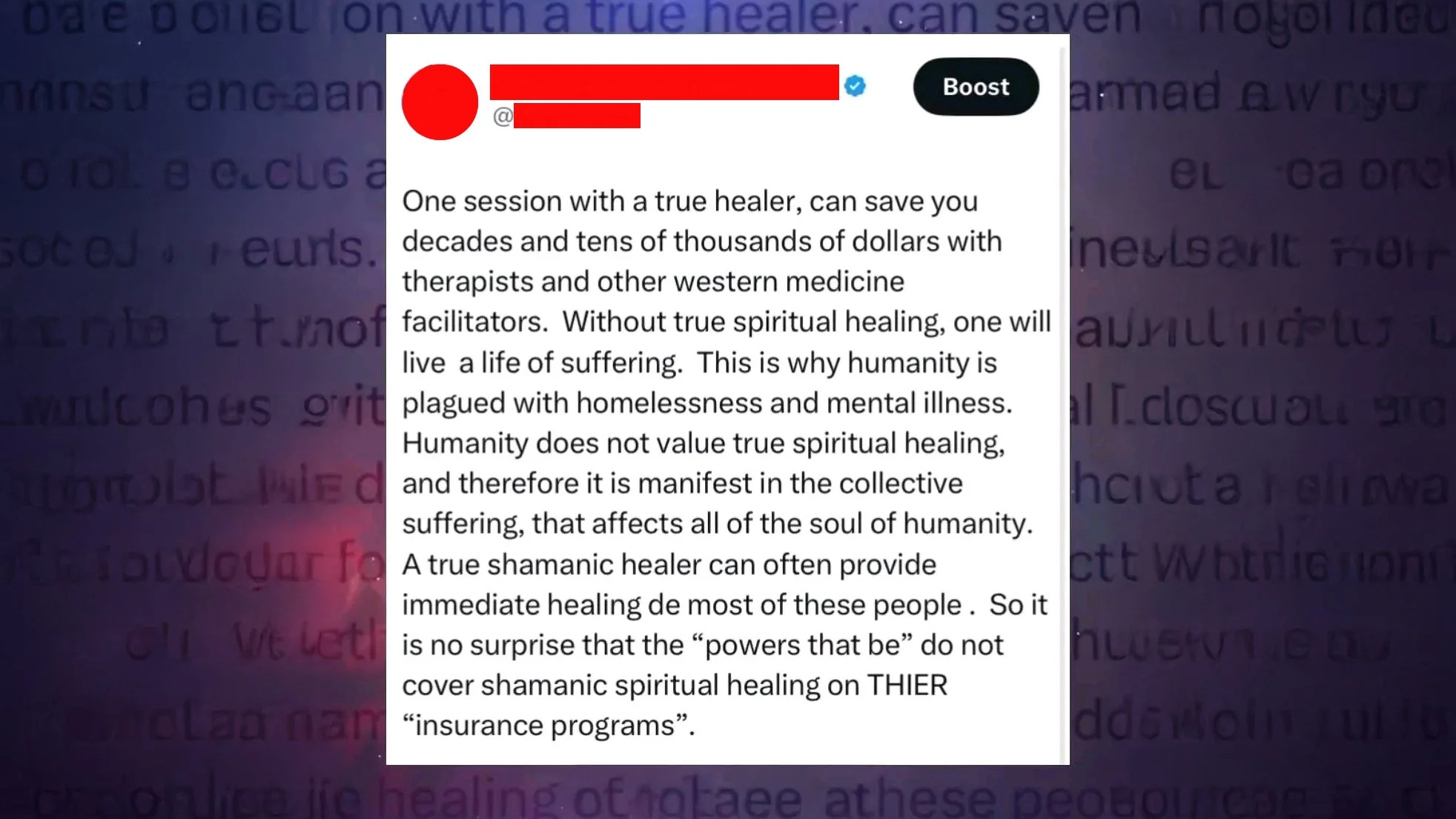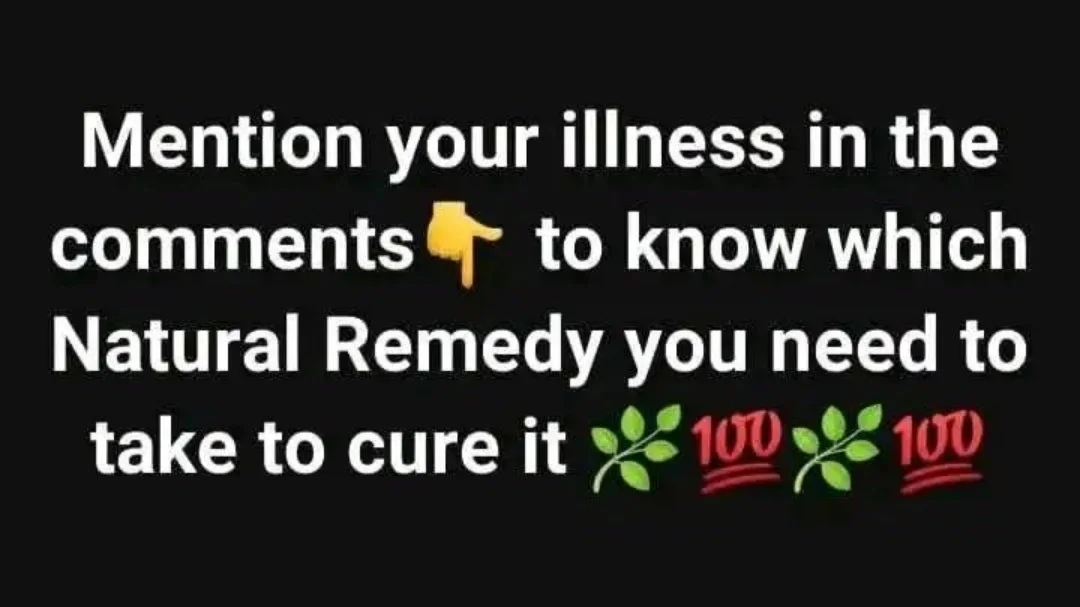Spiritual Malpractice
Dangerous claims made by unqualified holistic practitioners such as this one are unfortunately all too common.
When I stumbled upon the above image while scrolling through social media, I was mortified, to say the least.
Those of you who know me well enough know how I’m a stickler for ethics. However, as disappointing, shocking, and outlandish as claims like the above are, they’re more common than you’d think. I’m speaking on psychics/spiritual practitioners pretending to be doctors, or assuming they know more than doctors.
The above image was nowhere near my first experience with this issue, either. I’ve had heated arguments with practitioners who were adamant about holistic therapies being “more important” than medical ones. I know practitioners who passionately believe meditation can cure depression, mental illness, and even neurodivergence (even though neurodivergence isn’t considered an illness).
I know people who believe herbal remedies are superior to medication. I’ve met people who believed essential oils would “cure” their child’s ADHD (even though the oils they were diffusing in their home were killing their dog). And I’ve even met people who believe amethyst would get rid of their dog’s fleas.
The issue with spiritual malpractice is widespread and very dangerous. Why? Because being a holistic practitioner means you will frequently be around people in vulnerable mentalities, spaces, and situations. People do not seek psychics and healers because everything is going well. They seek them because they need answers and/or help. And these vulnerable people are very impressionable, and sometimes even desperate. So it’s easy for one bad piece of advice to jeopardize someone’s life.
Yet more ignorant statements you can easily find on metaphysical pages promoting false “cures” and conspiracy theories.
How Did We Get Here?
Unfortunately, there is just as much ego as there is “woo-woo” in the spiritual community. Much of it stems from the process of awakening. In a way, it’s a double-edged sword.
When most of us awaken, we initially become inquisitive about the spiritual world. Many of us act like sponges and absorb a lot of spiritual and esoteric information quickly. We stumble upon profound answers to many of life’s little mysteries. We also develop a deeper awareness of the world around us. The problem arises when we assume those same answers apply to other areas of life. Spiritual malpractice occurs when practitioners mistake wisdom for knowledge.
The assumption that spirituality has all the answers is ego-based. Karma and the life lessons we set out to learn in our lifetimes are complex. So, to assume spirituality, meditation, alternative medicine, or holistic therapies are the solution to everyone’s problems is a very linear, limited way of thinking. There is no “one-size-fits-all” solution to life’s problems.
Illness, disease, and the many other issues we can have can also be quite complex. Sometimes it’s karmic. Sometimes for growth, learning, or a million other reasons. Who are we to say that alternative medicine is the only path to a cure? Such assumptions are, at best, egoic. At worst, they’re predatory.
These harmful beliefs are part of a larger, more dangerous movement of anti-intellectualism. This movement is gaining traction due to our current heightened political climate and finds its roots in the distrust of science-based facts, higher education, and peer-reviewed research, while favoring things such as alternative therapies, conspiracy theories, self-proclaimed “experts” who affirm their biases, as well as anecdotal evidence.
This anti-intellectualism that runs rampant in the spiritual community is dangerous because it puts lives at risk. People who have little to no experience in the medical field are taking it upon themselves to tell clients what to do with their bodies. All because they allow themselves to assume they know as much as, if not more than, their client’s doctor, simply because they have a spiritual practice.
Science First
Spirituality (including alternative medicine, holistic therapies, and homeopathic “remedies”) will never replace, nor become an adequate substitute for, science and modern medicine. This is for a number of reasons. Science undergoes constant, rigorous scrutiny. It is data and research-based. It must fall under the scientific method and produce constant results. If it doesn’t, it’s back to the drawing board.
Most importantly, science is constantly evolving. In antithesis to anti-intellectualism, science adapts to and grows with new information. As new evidence and data come out, science evolves with it. The very nature of science requires a constant sense of curiosity.
Anti-intellectualism is the opposite. Those who swear by “one-size-fits-all” anecdotal experiences, alternative medicine, and even conspiracy theories thrive on confirmation bias. Unlike scientists, these people are more likely to seek and listen to what only confirms their beliefs, and any evidence that contradicts their narrative is rejected, regardless of its legitimacy.
At its core, this is why science and modern medicine are superior to alternative medicine: consistency. If anecdotal evidence, alternative medicine, holistic therapies, and homeopathic “remedies” did indeed work, they would be able to provide consistent, measurable results.
Yet they don’t.
…Because if they did, they wouldn’t be seen as “alternative” — they’d just be science.
Statements like these are all too common in the spiritual field. Sometimes it’s just ego, sometimes it's predatory.
Misguided Advice
Some in the spiritual community claim their “guides” told them to advise a client to come off their medication. I can tell you from many years of experience, this simply isn’t true. Unless it’s an emergency or a life-or-death situation, our guides will not channel medical advice through an unqualified person. When intuitives make this claim, it’s likely ego-based. Instead, guides encourage medical advocacy, but more on that in a moment.
We not only live in an age of mass awakening, but also in the age of the internet. Yet, this is both a blessing and a curse. The age of the internet allows for the quick dissemination of information that was once gatekept or hard to access. Want a spell for protection? There’s a Pinterest for that. Looking for channeled messages? You’ll find plenty on TikTok & YouTube.
However, the downside to the accessibility of spiritual information is the increase in disinformation, scams, charlatans, and predatory people that come with it. Everyone and anyone can create a TikTok and call themselves a psychic with little to no experience.
This rapid growth and lack of standards only work against the legitimacy of the field as a whole. This is why we need to police ourselves as practitioners — to set a baseline for ethics. A precedent for this field to thrive on.
Collective interest in spirituality is only going to grow. Topics that were once snubbed and considered “pseudoscience” are now gaining momentum and interest from the scientific community. What was once taboo is now being studied.
Yet, every time practitioners let their ego get the best of them, it puts a brick in the wall between spirituality and science. Instead, we need to build bridges. In order to do this, practitioners need to be willing to admit the limits of their knowledge. We have to be OK with not having all the answers.
Medical Advocacy
I hold no illusions about the existence of medical malpractice. Doctors aren’t perfect; we know this. Women, and especially women of color, are commonly dismissed by medical professionals with big egos and deaf ears. In cases where a client doesn’t feel heard by their doctor, it’s OK to encourage them to seek a second opinion or another doctor who will listen to them. That’s why health coaches and health advocates exist.
Our roles as healers, psychics, and metaphysicians are to help people on the spiritual level, while remembering our limits. The medical field isn’t perfect, but it isn’t our enemy, either. Otherwise, we’re just throwing the baby out with the bathwater.
To make the mistake of assuming spirituality is better than science, or that, as an intuitive, you somehow are more knowledgeable than doctors, is to sabotage the long-term growth of the spiritual community. Spirit won’t guide people away from science, but ego will. Wisdom must not be mistaken for knowledge. When managed ethically, spirituality complements science. It’s up to us to remember and be aware of the lines we shouldn’t cross.






